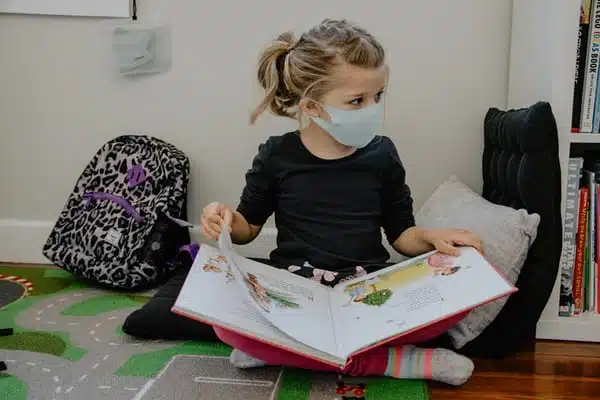The Department for Education has come under fire for failing to set standards for in-school or remote learning during 2020 amidst the COVID-19 pandemic and has been accused of being “surprisingly resistant” to lessons-learned exercise amid concerns over catchup offer.

The Public Accounts Committee states that when schools were closed to most pupils in early 2020 the “DfE set no standards for in-school or remote learning during the rest of the school year” meaning “children had very unequal experiences”. The DfE has still not properly assessed its early response in order to learn lessons for the future.
Meg Hillier MP, Chair of the Public Accounts Committee, said: “The pandemic has further exposed a very ugly truth about the children living in poverty and disadvantage who have been hit particularly hard during the pandemic. On-line learning was inaccessible to many children even in later lockdowns and there is no commitment to ongoing additional funding for IT. Schools will be expected to fund laptops out of their existing, and already squeezed, budgets.
“The committee was concerned that DfE appears uninterested in learning lessons from earlier in the pandemic, preferring to wait until the public enquiry which won’t report for years. It shows little energy and determination to ensure that its ‘catch-up’ offer is sufficient to undo the damage of the past 14 months,” she added.
In its report ‘COVID-19 - Support for children’s educations,’ the Public Accounts Committee highlights how the COVID-19 pandemic has caused unprecedented disruption to our school system. The DfE was involved in a 2016 cross-government exercise on dealing with an influenza pandemic, yet had no plan for handling the disruption that came with the pandemic and was unprepared for dealing with the challenges posed in early 2020. Consequently, it struggled to react to events in a timely and effective way.
Disadvantaged children already facing adversity were the hardest hit by the disruption to schooling. Although they could continue attending, most vulnerable pupils stopped going to school, and referrals to children’s social care services fell, raising concerns about whether children were being effectively protected.
This is something that has been of great concern to WillisPalmer since shortly into the first lockdown in April 2020 and, as a result, we launched our Children’s Charter in September 2020 urging teachers to be aware of signs of neglect and abuse among pupils as the majority of children returned to school.
Furthermore, the committee found that children with special educational needs and disabilities experienced difficulties learning remotely, and some lost access to specialist support and equipment, increasing risks to their health and welfare.
Disadvantaged children also faced major barriers to effective home learning, which will have exacerbated the gap in attainment between them and their peers.
“The Department has much work to do to help children recover from the effects of the disruption caused by the pandemic. Its catch-up programme is intended to help make up for the learning that children have lost since March 2020, but there is already evidence that the targeted elements of the programme may not be reaching the most disadvantaged children. More generally, the Department has worthy aspirations but little specific detail about how it will build the school system back better, including how it will secure best value from the £400 million it has spent on IT equipment to support children’s online learning and the £1.7 billion it has committed to the catch-up programme,” said the report.
The Public Accounts Committee recommends that The DfE should carry out a systematic lessons-learned exercise, to evaluate its response to the pandemic and identify departmental-specific lessons and set out its main findings to the committee.
The DfE should also work in collaboration with the Association of Directors of Children’s Services to explore why the number of referrals to children’s social care services remains below expected levels, and take action in light of the findings to make sure children are being effectively safeguarded. Furthermore, the Department should work with the Department of Health and Social Care to identify the specific actions needed to help children with SEND recover from the damage caused during the pandemic.
The Committee also recommends that the Department should set out a plan for how it will ensure that all vulnerable and disadvantaged children have access to IT equipment to support their learning at home.
Metrics should also be provided to the committee which the DfE will use to monitor the catch-up learning programme, and what level of performance would represent success.
Finally, The Department should set out how it intends to gain assurance on the quantity and quality of tutoring and mentoring provided under the National Tutoring Programme. Its response should cover in particular how it intends to ensure there is adequate tutoring and mentoring provision in areas of the country where educational attainment is lower, the report concludes.

